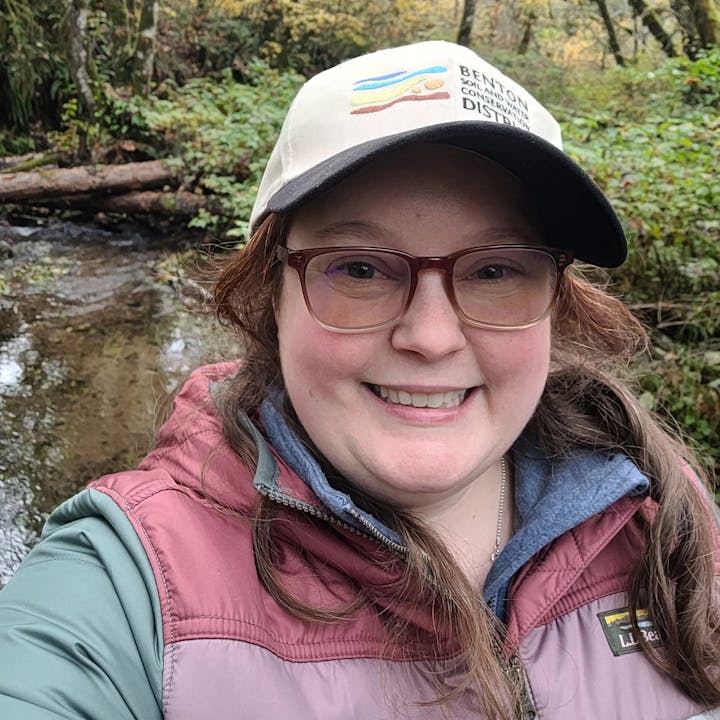The Dirt | Paddle and Pull Events an Aquatic Success
By Sara Roberts, Community Engagement Coordinator
“Paddle and Pull” is an annual community outreach event with two important purposes: educating the public about aquatic invasive weeds, and eliciting their help to remove them! Two Paddle and Pull events were hosted on July 14 and July 29, 2023 by member organizations of the Willamette Mainstem Cooperative, including Benton Soil and Water Conservation District, Willamette Riverkeeper, and Oregon Parks and Recreation.

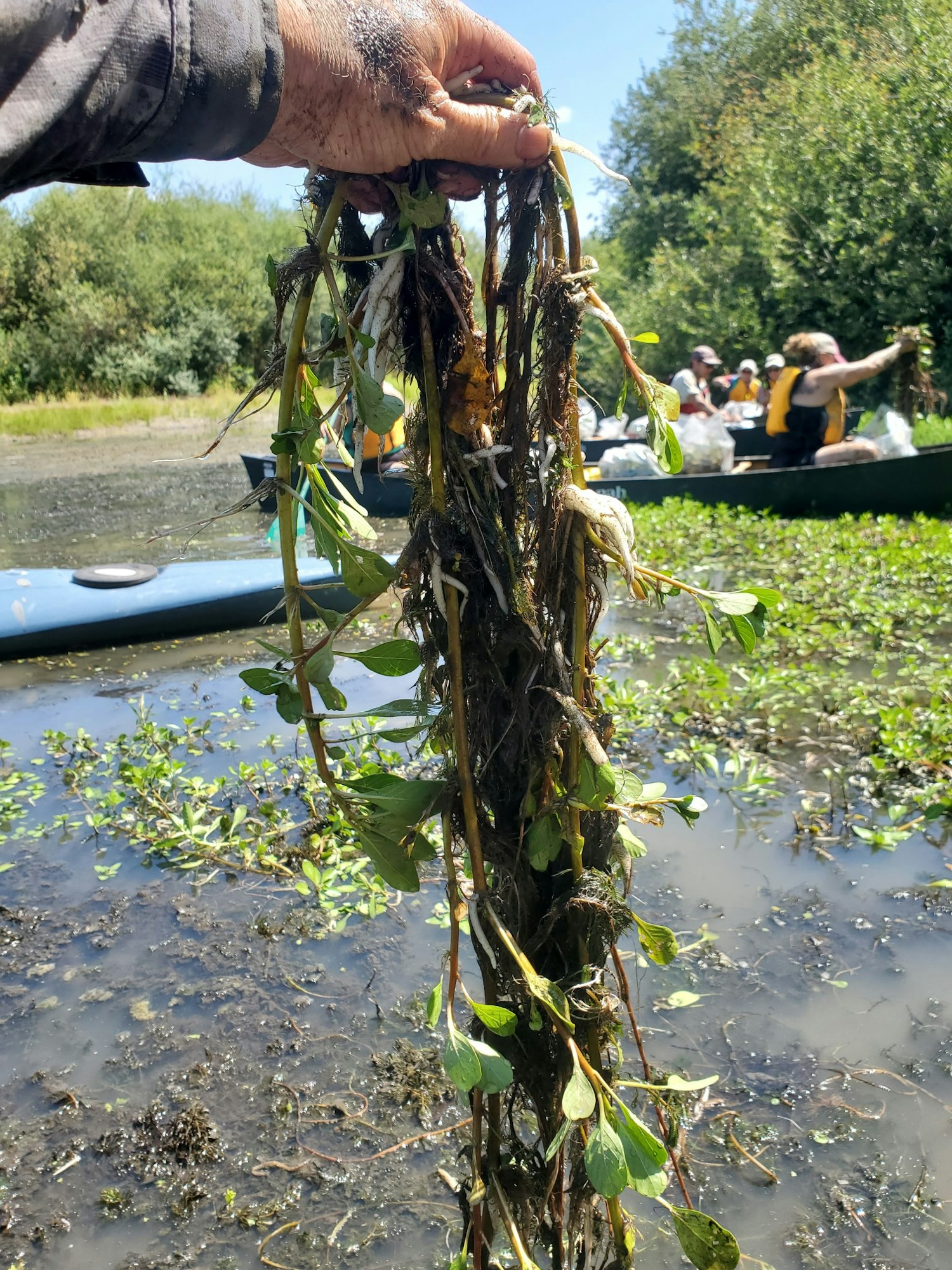
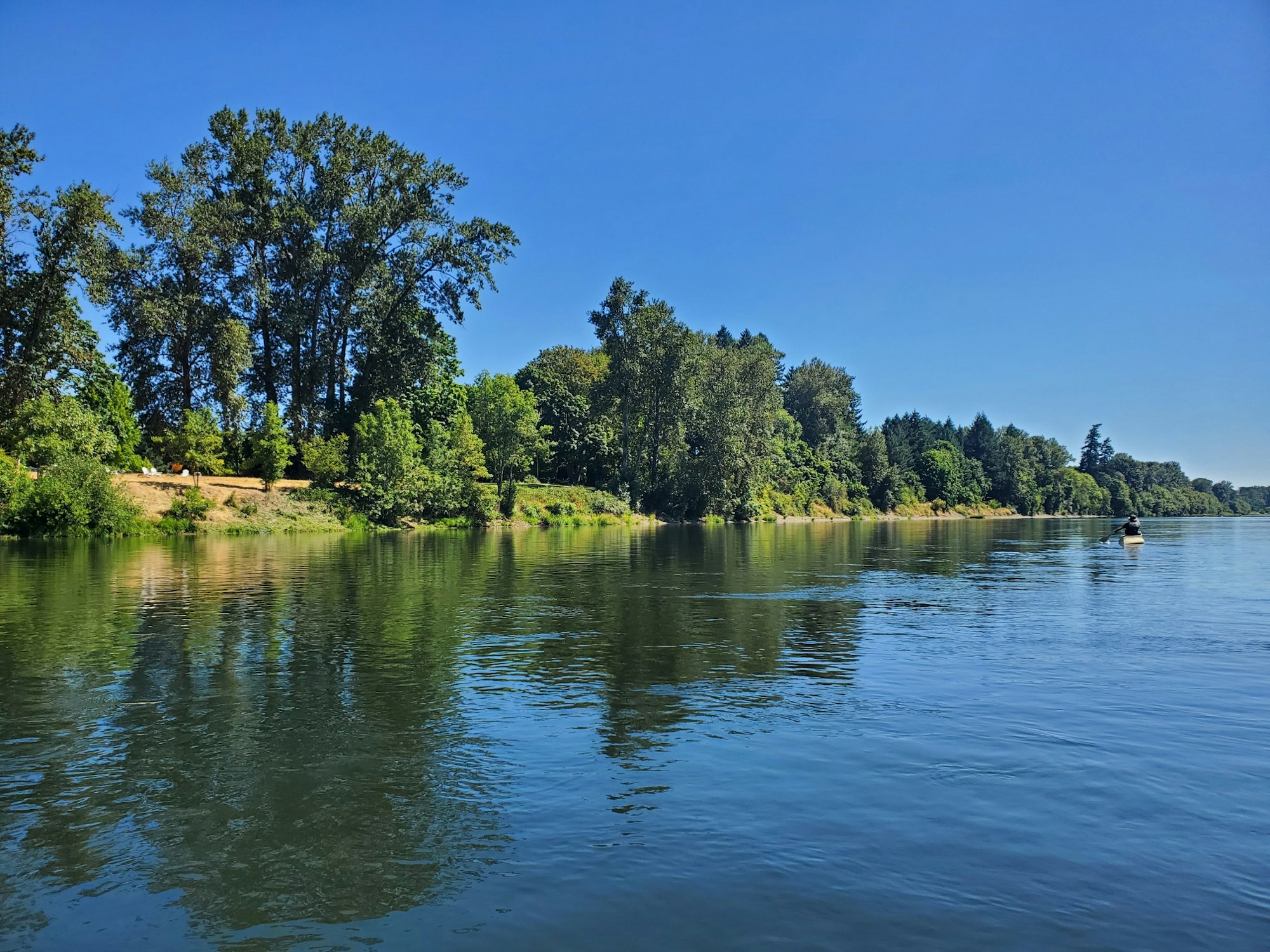
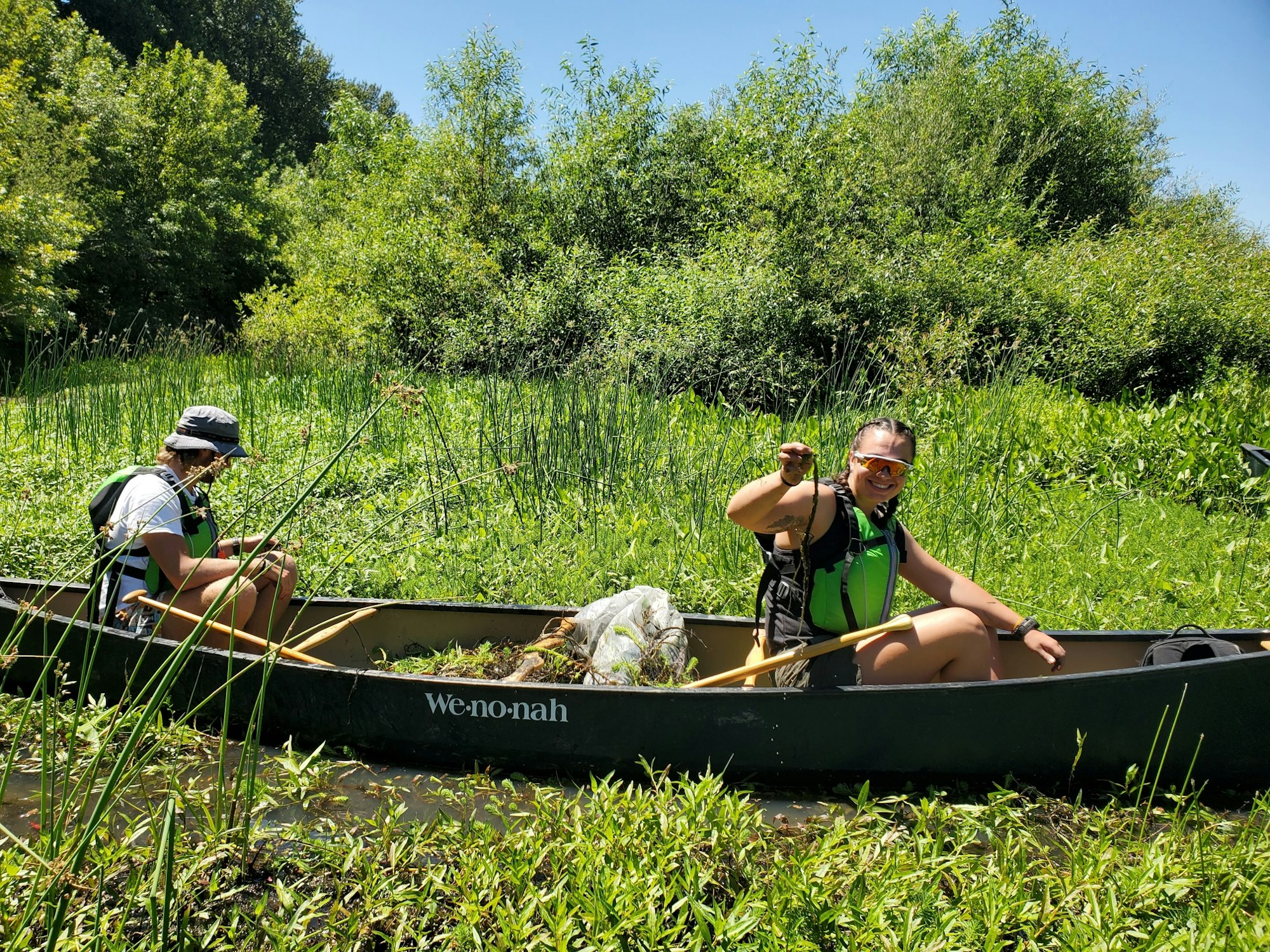


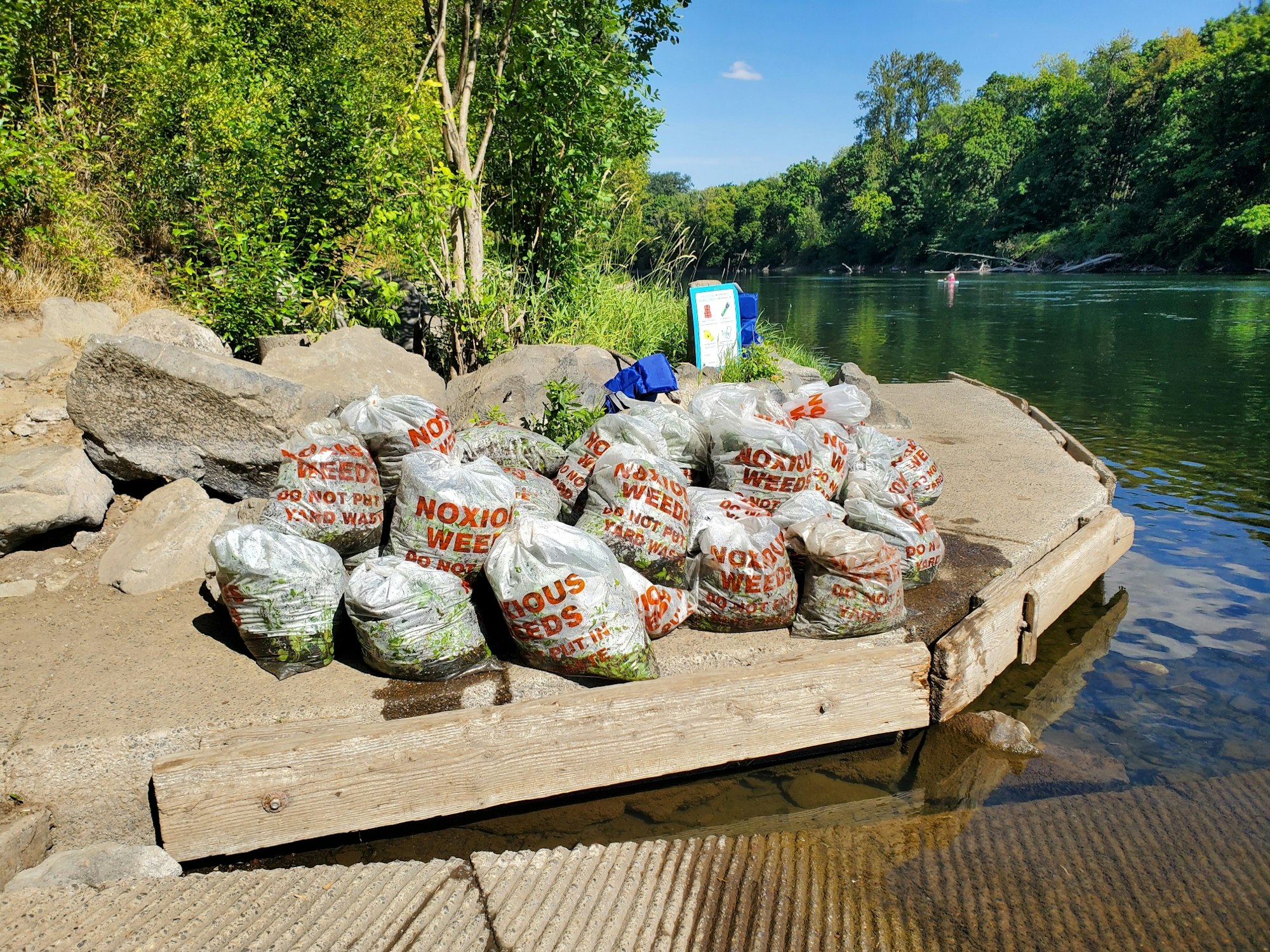







When people think about invasive plants, they tend to think of the various “usual suspects” on land: blackberry, ivy, etc. But there are also many non-native weeds that grow in the water and that have invaded our local rivers and streams. Many of these were introduced by the home aquarium trade, and escaped into the wild when people accidentally or intentionally dumped aquarium plants into a natural waterway. Some also escape from landscaped ponds or other backyard water features.
Aquatic invasive plants can cause a number of negative impacts that are different from their terrestrial counterparts. When they grow in thick mats (as many have the habit of doing), these weeds block sunlight and crowd out other species. When they die, the underwater decomposition process consumes a huge amount of oxygen. Both of these conditions create an overall poor environment for native species including other plants, fish, and amphibians.
These mats also pose a serious problem for boaters, anglers, and other recreational water users. Boat propellers can get stuck in plant stalks, and the thick plant growth makes it impossible to swim in invaded areas. Because they are located in water, aquatic plants are challenging to remove. Herbicides can spread quickly through waterways and so are difficult to use. Removal by hand is time-consuming and difficult work but it is often the best, or only, option.
Over 30 volunteers participated in the two all-day events, which took place fully on the water. By kayak and canoe, volunteers travelled 9 river-miles from Michael’s Landing in Corvallis to Hyak Park in Albany, making stops along the way to both pull aquatic invasives and learn about various restoration sites and projects.
First up was Half Moon Bend, where participants learned about the work of Benton SWCD, local farmers, and other partners to plant 27 acres of this parcel to restore native floodplain forest. Next, they stopped at Tripp Island to pull Parrots Feathers (Myriophyllum aquaticum), and then on to Lower Kiger Island to pull Water-Primose (Ludwigia hexapetala), better known by its species name of Ludwigia. All of the species targeted during these events are listed under the Oregon Department of Agriculture Noxious Weed Control Program and are rated according to the negative impacts they have on the native vegetation, fish and wildlife habitat, water quality, and overall watershed health.
Participants made a huge dent in the Ludwigia monoculture that is forming in some places along the Willamette River. “One thing I love about having volunteers at Lower Kiger Island is that they can really make an impact by handpulling weeds at that site,” said Michael Ahr, Natural Resource Conservation Program Manager at Benton SWCD. “Some sites are many acres of weeds where we enlist contractors to help us, but Lower Kiger is a perfect place for a couple dozen motivated people to make a big difference…and the native Wapato plants are flourishing because of this good work.” The groups also stopped at Wapato Cove, which is a site that Benton SWCD has been treating for 6 years to control Ludwigia. This project is considered a huge success, as that area is now dominated by the native aquatic plant Wapato (Sagittaria latifolia).
In total, over the two days, volunteers collected about 50 garbage bags full of invasive aquatic weeds!
How can you help to prevent the spread of aquatic invasive species? Remember to Clean-Drain-Dry all recreational equipment that was used in or around the water. Furthermore, boats should never be driven through invasive plants to avoid spreading them through fragmentation. You can also help us keep an eye out for invasive species at your favorite river spots. Check out our handy guide for pictures and identification tips: Water Weeds – A Guide to Aquatic Weeds for Benton County
Do you have questions, or want to report a suspected aquatic invasive weed sighting? Reach out to us at michael@bentonswcd.org / 541-753-7208.

